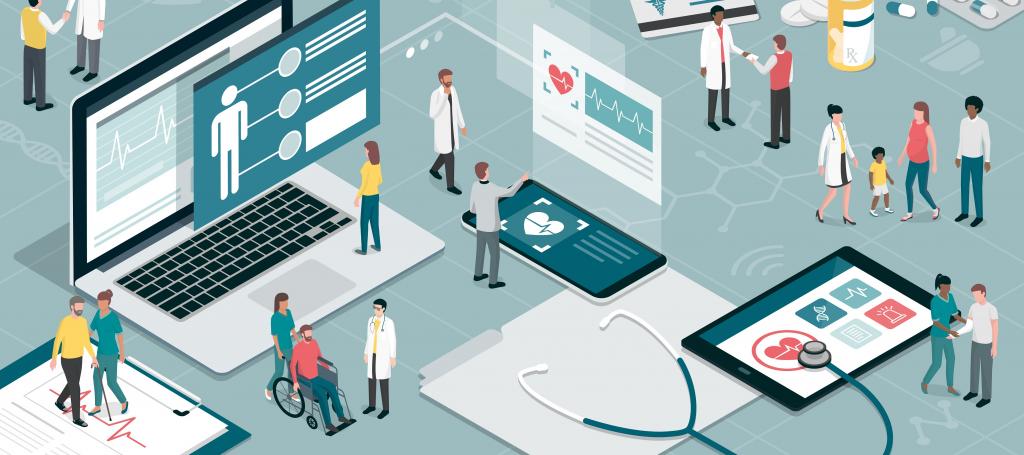Literature defines emerging technologies as those that are still in development, hold promise, are innovative and transformative (1). In the area of health one could list AI for health, block chain for health research and drug development, gene technologies, personalized health apps, and neural technologies as emerging technologies. All these technologies have the potential to be transformative in how we view and manage health care, and the impact they have on humanity, not only for this generation (here and now) but for future generations. This brings to the fore the role of responsible stewardship for humanity that addresses questions such as what do we wish our future to look like, and how do we wish the future generation to view us and our decision. At least in the case of emerging technologies, we have the possibility to intervene to steer the development of the new technologies to a future that we would like to see, rather than allow the technologies to take control of our future. This is where the role of ethics becomes salient. If we agree that science should serve society for "the good", then the role of ethics in the case of emerging technologies is not only to assess safety and efficacy, but to go beyond, and bring to the fore questions such as the impact of the technology on humanity, on the way that we live and interact with each other, not only with other human beings but with other living beings on the planet, the impact that the technology might have on global public goods, and how they can be protected, and finally, the way that it will influence generations to come and to mitigate the possible negative effects in favour of the greater good for society. As Peter Singer the Australian ethicist has said, "My hope is that we will use technology to bring about a better life for all in a more egalitarian way that helps those who are worst off. That is where we can do the greatest amount of good."
In order to do so, a broad societal reflection is required on these and other relevant questions. What do I mean by a "broad societal reflection"? For me this means the reflection is coming from an interdisciplinary group from different cultures, different world-views, different generations, different societal norms, among other things. Such a reflection should include both technical experts and thought leaders from different countries to consider the effect of the particular emerging technology on human values such as integrity, compassion, dignity, rights in a way that is inclusive, transparent and values accountability. It must be led by an organization or groups of persons who are seen internationally as neutral, credible, and supportive of human rights and ethical values, and have the capability to convene a disparate group of experts to come to a consensus on these sorts of questions. The World Health Organization is one such organization that comes to mind, which has the mandate from 194 Member States to precisely carry out this function.
And two weeks ago, we saw the Organization take a leading role in the development of a strong international governance framework for human gene editing (2). Gene editing has the potential to alter the genetic make-up of individuals if carried out on the somatic cell lines, but it also has the potential to alter the human genome structure forever and irrevocably if carried out on the germline. The stakes of altering the human genome – perhaps irreversibly – are too high and consequences for the future generations too unknown. This has huge implications especially for the future generations who did not even have a say in this decision making. This generation owes it to the future generation to think carefully and deliberatively through the issues. The work of the Advisory committee is not easy, with many research groups interested in furthering the science quickly and being the first to reach the scientific goal post. An ethical reflection will be key. The full support of the governments of Member States will be required. And it will require resources.
The formation of the Focus Group on Artificial Intelligence for Health (FG-AI4H) is another welcome initiative that WHO has taken in partnership with ITU (3). The group will develop processes for AI evaluation and benchmarking specific for each health topic, ensuring that the data for training and testing of AI algorithms use transparent processes, are of high quality, and ethically generated.
But what about other technologies that also have the potential to be either divisive or transformative in ways that we may not even have comprehended such as, age enhancing technologies, block chain technology, neuro-technologies, and others that may be on the horizon, and still not mainstream. WHO has said that "this work of the human genome editing advisory committee will be a template for us for other activities in this area of applications of emerging technologies more broadly", this is welcome news. WHO has an important role to play in guiding the development of new technologies in directions that are beneficial to global public health, and make the world less divisive and more equitable. As Soumya Swaminathan, the Chief Scientist at WHO said "horizon scanning for new and potentially transformative technologies is an important role that WHO should take on more seriously. We owe it to our future generations to ensure that we have made our choices deliberatively keeping in mind the needs of this generation but also of future generations."
Written by Abha Saxena
Invited Professor at the University of Geneva
Senior Advisor (Bioethics), The INCLEN Trust International, India
Senior Ethics Consultant, Geneva
References
- Brey, P. (2017). Ethics of Emerging Technologies. In S. O. Hansson (Ed.), Methods for the Ethics of Technology. Rowman and Littlefield International.
- WHO expert panel paves way for strong international governance on human genome editing, WHO, 19 March 2019.
- WHO and ITU establish benchmarking process for artificial intelligence in health, The Lancet, 29 March 2019.


